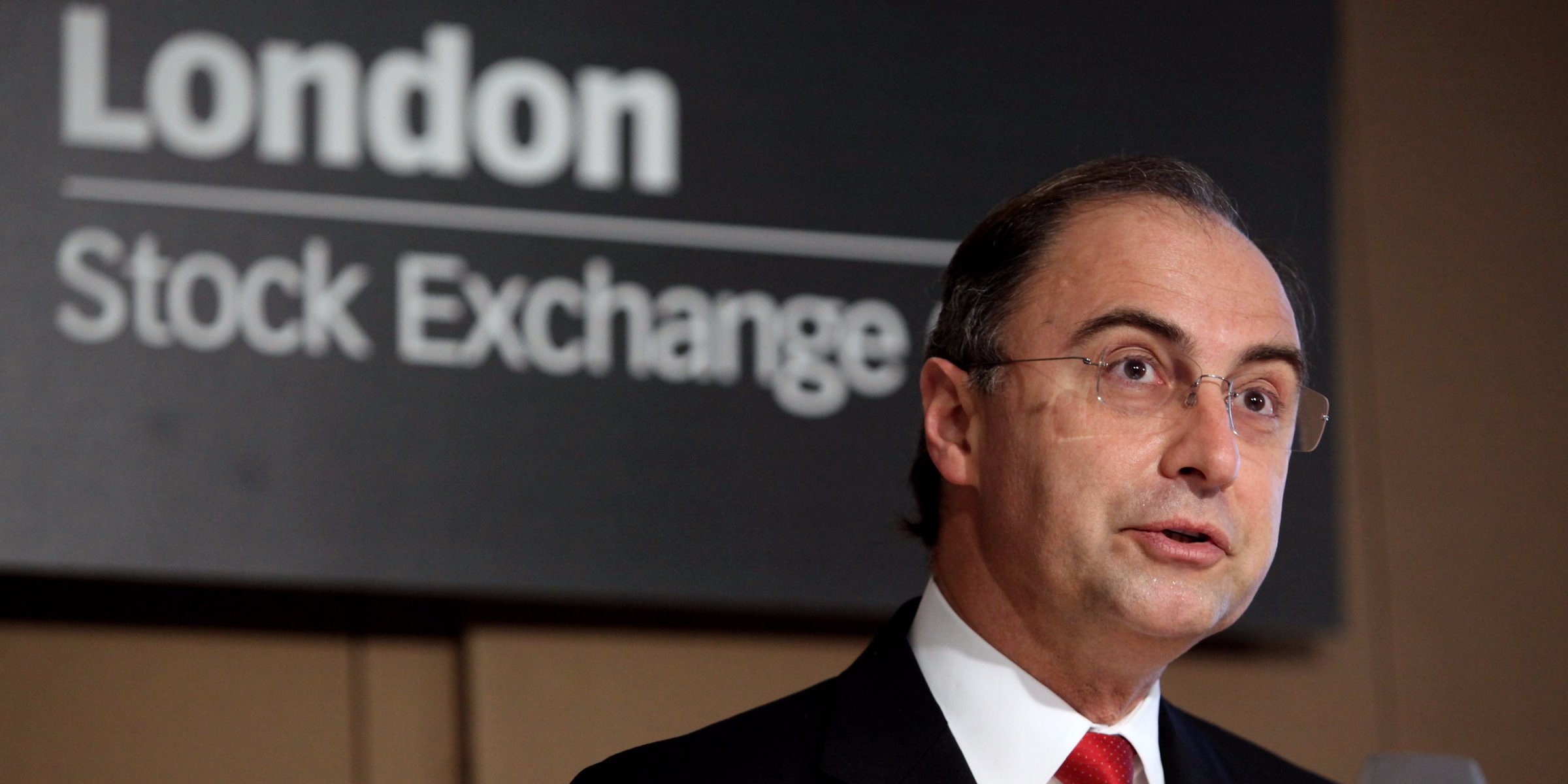 Outgoing London Stock Exchange CEO Xavier Rolet.Oli Scarff/Getty
Outgoing London Stock Exchange CEO Xavier Rolet.Oli Scarff/Getty
- London Stock Exchange board in row with investors The Children’s Investment (TCI) Fund over LSE CEO Xavier Rolet’s departure.
- TCI Fund claims Rolet is being forced out by the board, who allegedly are threatening to publish a damaging dossier on him unless he leaves.
- LSE says in a letter to shareholders on Friday that Rolet’s “operating style” played a part in the decision to look for new CEO but says it “would be detrimental… to provide further detail on these aspects.”
- LSE calls for shareholders to vote down motion from TCI Fund to remove chairman Donald Brydon, who TCI alleges is behind Rolet’s ousting.
LONDON — The board of the London Stock Exchange said that outgoing CEO Xavier Rolet’s “operating style” played a part in his exit as the corporate governance crisis at the exchange group rumbles on.
The LSE board has been locked in a battle with shareholder The Children’s Investment (TCI) Fund over Rolet’s departure for more than a month.
LSE first announced in late October that Rolet planned to step down as CEO by December 2018. TCI Fund CEO Sir Christopher Hohn became suspicious when Rolet said he couldn’t answer questions as to why he had decided to leave.
Hohn then alleged that LSE chairman Donald Brydon was trying to force Rolet out, claiming Brydon was using a threat to publish a dossier on Rolet’s behaviour as leverage. Hohn, whose TCI Fund owns 5% of LSE, called for a shareholder vote on firing Brydon and keeping Rolet in position.
LSE announced on Wednesday that Rolet was leaving “with immediate effect” after “unwelcome publicity” and said Brydon would step down as chair in 2019 after a new CEO is firmly in place. The board called for TCI Fund to withdraw its call for a shareholder meeting.
 Sir Christopher Hohn of The Children’s Investment Fund leaves Portcullis House on January 27, 2009 in London.Peter Macdiarmid/Getty Images
Sir Christopher Hohn of The Children’s Investment Fund leaves Portcullis House on January 27, 2009 in London.Peter Macdiarmid/Getty Images
However, Hohn has stood firm. On Thursday he withdrew his motion to keep Rolet in place as CEO but said he would still ask shareholders to vote on Brydon’s ousting.
LSE sent a letter to shareholders on Friday calling a general meeting of shareholders on December 19 to hold the vote. Independent director Paul Heiden called for shareholders to reject the motion, saying that getting rid of Brydon “risks significantly damaging the Company.”
In the letter, seen by Business Insider, Heiden also set out some of the logic behind Rolet’s exit in a bid to assuage suspicions.
Heiden said the topic of Rolet’s departure first arose when LSE was planning to merge with Deutsche Borse. Rolet had offered to step aside once the merger was completed. The deal eventually fell through but the board felt the issue was worth addressing given it had been raised publically.
“Given the length of Xavier Rolet’s tenure (which would have been almost 10 years by the end of 2018), having a clear CEO succession plan was a priority for the Company,” Heiden said.
But Heiden admits that “aspects of Xavier Rolet’s operating style were also important factors taken into account by the Board when assessing the right time to put in place a succession plan.”
“In all the circumstances, including given that Xavier Rolet is leaving the Company and that the second resolution has been withdrawn, the Board has determined that it would be detrimental to the Company and its stakeholders to provide further detail on these aspects,” Heiden wrote.
TCI Fund has criticised the LSE board for committing Rolet to a non-disclosure agreement, which has prevented him from explaining his reasons for leaving.
 Xavier Rolet, left, with LSE Group chairman Donald Brydon.Royal Mail Group via Getty Images
Xavier Rolet, left, with LSE Group chairman Donald Brydon.Royal Mail Group via Getty Images
Explaining the decision, Heiden wrote: “The Company (as would be typical) agreed a set of materials setting out standard “questions and answers” to ensure a consistent message was given in response to media enquiries regarding the 19 October Announcement.
This became a negotiated document. In response to representations made on behalf of Xavier Rolet, to ensure that the Company did not represent that Xavier Rolet had agreed to retire, the settlement agreement included obligations on both parties to comply with these agreed messages.
He added: “Xavier Rolet and the Company have now agreed that these obligations will no longer apply. However, they have agreed that they will not seek to make statements with the intention of causing damage to the interests and reputation of LSEG, its directors, companies in the LSEG group or Xavier Rolet in any statements that they make.”
TCI Fund’s recent vocal criticism has “negatively impacted” the “relationships between Xavier Rolet and the Board,” Heiden said.
“This has also led to pressure on the relationship between Xavier Rolet and certain members of the senior management team. Given these circumstances, it became clear to the Board during this period that it would be in the best interests of the Company for Xavier Rolet to step down from office with immediate effect and, on the Board’s request, Xavier Rolet confirmed he would do so.”
Heiden told shareholders: “Tribute was paid to Xavier Rolet’s very considerable achievements in the 19 October Announcement. But no CEO is irreplaceable and the Board considers that, without Xavier Rolet in office, the Company will continue to prosper with its existing strong management team.”
He added that Brydon “has brought invaluable skills and experience, and performed to the high expectations of an experienced Board for over two years, and he should continue to do so.”













